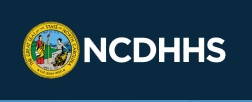
Special to IFN
RALEIGH — The N.C. Department of Health & Human Services has launched a new, multilingual Disaster and Behavioral Health Resources Communications Toolkit to provide communities with tips, guidance and resources to support mental and emotional health before, during and after a disaster.
“It’s important to remember that there is no right or wrong way to feel after a natural disaster. The emotional effects can happen immediately or later down the road,” said NCDHHS Secretary Kody H. Kinsley. “We want every North Carolinian to have access to the tools and support they need to cope in a healthy way, and to know how to find help now and in the future.”
The new, multilingual Disaster and Behavioral Health Resources Communications Toolkit provides disaster-specific resources to support the needs of North Carolinians as well as ways to strengthen mental and emotional health. The toolkit includes fact sheets, social media posts and videos on how to find mental health resources nearby, online or by phone; navigate stressful events while living with a disability or as a caregiver; access care if someone struggles with substance use; learn safety guidance and more. Several materials are also available in Spanish, Mandarin and Arabic to inform and support more North Carolinians.
“Disasters are a part of life in North Carolina and can impact every community across the state,” said Kelly Crosbie, director of the NCDHHS Division of Mental Health, Developmental Disabilities, and Substance Use Services. “June marks the start of hurricane season and a timely opportunity to share the many resources available to help North Carolinians stay connected, support their mental health and access care while navigating a disaster.”
The toolkit is an important resource for educators, health care providers, caregivers, first responders, crisis response professionals and disaster volunteers to be aware of behavioral health resources and supports available in the community when responding to an emergency or natural disaster.
NCDHHS encourages North Carolinians to print or screenshot information from the toolkit for use in personal disaster preparation as well as recovery. The materials include general disaster tips and resources, in addition to mental health services like the 988 Suicide and Crisis Lifeline and Disaster Distress Helpline. Share the toolkit with families, friends and colleagues, and make a plan to stay in touch with your loved ones during a disaster.
While disasters can happen suddenly, it’s important for everyone to take steps now that will help reduce stress, strengthen mental health and prepare communities to navigate disaster recovery.
LEARN MORE
Visit ReadyNC.gov to learn more and help spread the word about the Disaster and Behavioral Health Resources Communications Toolkit.



